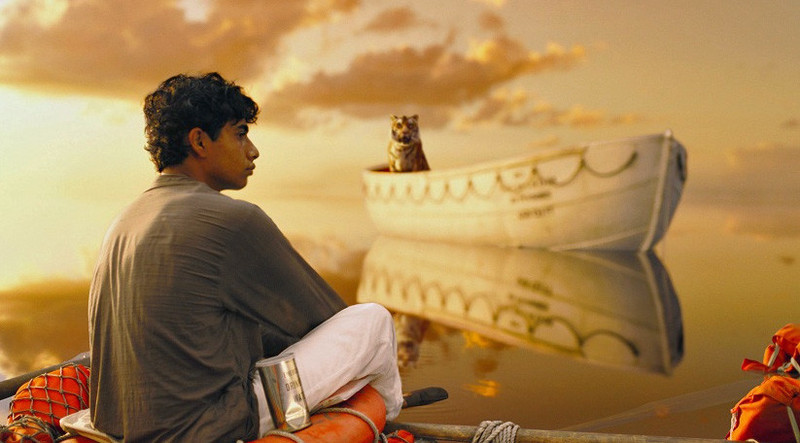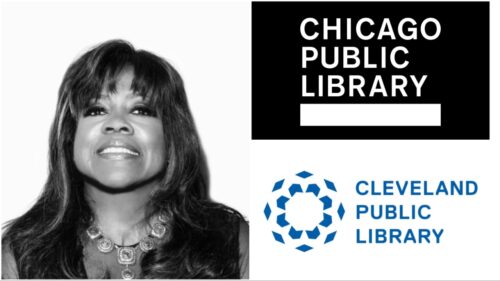It’s a coincidence that both director Ang Lee and Roger Ebert studied at the University of Illinois Urbana-Champaign, but it’s less of one that they became friends. As Lee’s films and Roger’s reviews would show, they were both fans of cinematic thrills like period pieces, comic book movies that focus on the human element, and filmmaking that pushed expectations of both audience and technology. Even in Roger’s interviews with Lee, of which he did at least two on the record, there’s a collective excitement about Lee’s groundbreaking, beautiful cinema. Whether talking about the acrobatics of “Crouching Tiger, Hidden Dragon” or the water in “Life of Pi,” the two shared a dedication to celebrate the best qualities of filmmaking possible.
The relationship between Lee and Roger was progressive, with the critic not responding heavily to the first two films he saw by the director. On August 27, 1993, Roger gave three stars to “The Wedding Banquet,” saying that it “isn’t a particularly slick film,” but, “what makes the film work is the underlying validity of the story, the way the filmmakers don’t simply go for melodrama and laughs, but pay these characters their due.” He lowered that ranking for a review of Lee’s take on “Sense and Sensibility,” saying, “[it] is an enjoyable film, and yet it left me somehow unsatisfied.” Roger felt that it didn’t have the tightness of Roger Michell’s version of Austen’s “Persuasion,” released the same year.
The first film of Lee’s that earned four stars from Roger was the dysfunctional family drama “The Ice Storm,” which he reviewed on October 17, 1997. As Roger praised in the piece: “Despite its mordant undertones, the film is often satirical and frequently very funny, and quietly observant in its performances.”
After Lee’s followup misfire with the 1999 western “Ride with the Devil” (which Roger called “not a very entertaining movie”), the director returned to star rating prominence with “Crouching Tiger Hidden Dragon,” which Roger gave four stars in a review published on December 22, 2000. Designating it as “one of the most exhilarating martial arts movies I have ever seen,” he even shares a gob-smacked conversation he had with Lee in which the director tells him CGI was only used to get rid of the wires in its most gravity-defying scenes. In a contagious awe, Roger closes his review with: “But like all ambitious movies, ‘Crouching Tiger, Hidden Dragon’ transcends its origins and becomes one of a kind. It’s glorious, unashamed escapism and surprisingly touching at the same time.”
The same attention to character and a production’s natural wonder was carried into 2003’s “Hulk,” which Roger gave three stars but called it “the most talkative and thoughtful recent comic book adaptation.” In his June 20, 2003 review, Roger prefaced the film as even more than just a comic book movie: “He is trying here to actually deal with the issues in the story of the Hulk, instead of simply cutting to brainless special effects.” Roger programmed “Hulk” for Ebertfest 2008.
Roger gave another four-star rating to Lee’s “Hulk” followup, “Brokeback Mountain,” in a review published on December 15, 2005. Praising how the movie was more than just the poorly-labeled “gay cowboy movie,” Roger made a point about the film’s impact within the span of Lee’s authorship: “Ang Lee is a director whose films are set in many nations and many times. What they have in common is an instinctive sympathy for the characters. Born in Taiwan, he makes movies about Americans, British, Chinese, straights, gays; his sci-fi movie ‘Hulk’ was about a misunderstood outsider.”
When Lee’s erotic drama “Lust, Caution” was released, Roger gave it three stars in a review published on October 4, 2007, while also stating that “Ang Lee, from Taipei out of the University of Illinois, has become one of the world’s leading directors.” But, as he hastens to add, “it is not among his best films. It lacks the focus and fire that his characters finally find. Less sense, more sensibility.”
That same rating echoed when Lee tackled the story of Woodstock for his comedy “Taking Woodstock,” which Roger reviewed on August 26, 2009. The film was another impressive technological feat for Lee in Roger’s eyes: “What Lee does, apparently, is use footage from Michael Wadleigh’s ‘Woodstock’ (1970) and insert Eliot and others into it. I say ‘apparently’ because I am informed he used no original footage at all. This is amazing, because It looks so remarkably convincing.” He noted later in his review: “’Taking Woodstock’ has the freshness of something being created, not remembered.”
On November 17, 2012, Roger published a fascinating interview between himself and Lee regarding Lee’s latest project “Life of Pi,” among many other subjects. Roger even talks about Lee like an old friend: “I’ve known him a long time, he’s honored us with his presence at Ebertfest, and there’s a special connection because we both attended the University of Illinois at Urbana-Champaign. Over the years, I have decided he is one of the wisest and kindest men I’ve met.”
Three days later, Roger gave four stars to “Life of Pi” in one of the most glowing reviews he ever wrote for a Lee film. He opened the review with a massive declaration: “Ang Lee’s ‘Life of Pi’ is a miraculous achievement of storytelling and a landmark of visual mastery. Inspired by a worldwide best-seller that many readers must have assumed was unfilmable, it is a triumph over its difficulties. It is also a moving spiritual achievement, a movie whose title could have been shortened to “life.” Roger responded heavily to Lee’s usage of 3-D in particular: “I’ve never seen the medium better employed, not even in ‘Avatar.'” As he says while describing one of many fantastic images in Lee’s most recent film: “This is not a shot of a boat floating in the ocean. It is a shot of ocean, boat and sky as one glorious place.” Roger set the film at #2 of his “Best of” list for 2012.











